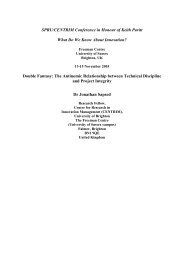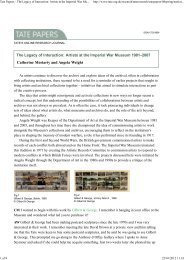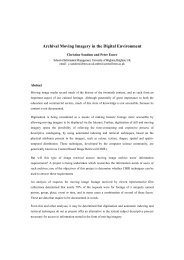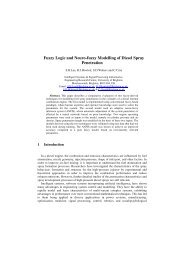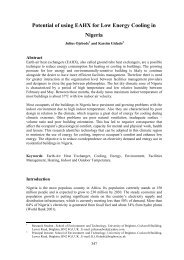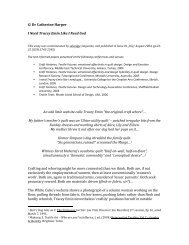TOP TIP - University of Brighton Repository
TOP TIP - University of Brighton Repository
TOP TIP - University of Brighton Repository
Create successful ePaper yourself
Turn your PDF publications into a flip-book with our unique Google optimized e-Paper software.
6<br />
Young PROMISING PRACTICE<br />
fathers workers<br />
In this section we explore a number<br />
<strong>of</strong> issues relating to practitioners<br />
who work with young fathers. Our<br />
research tells us that where there<br />
are dedicated young fathers posts,<br />
the workers tend to be men. We<br />
examine whether this is necessary<br />
and discuss the role <strong>of</strong> gender and<br />
ethnicity in delivering both specialist services (for fathers), and more<br />
generic mainstream services for parents. Finally, we present learning<br />
points regarding the skills practitioners need in order to work<br />
successfully with young fathers.<br />
Gender and ethnicity in practice<br />
Gender and ethnicity (<strong>of</strong> workers<br />
and clients) raises a number <strong>of</strong><br />
key questions in relation to<br />
young fathers work. Although some<br />
women <strong>of</strong>ten express clear preferences<br />
in terms <strong>of</strong> the gender <strong>of</strong> workers (e.g.<br />
in health settings such as GP surgeries),<br />
this preference is <strong>of</strong>ten not quite as<br />
clear cut in relation to young men<br />
(Lloyd, 2001). T-BAG in Halifax tell<br />
us that their teenage fathers usually<br />
prefer to confide with the female<br />
workers, rather than the male worker.<br />
Similarly, the Health Initiatives Team<br />
at Education Leeds (working with<br />
school-age fathers) reported that the<br />
young men who attend the after-school<br />
group (FACT), tend to develop strong<br />
connections with the female nursery<br />
nurses. Both projects proposed that it<br />
may be the ‘maternal’ aspect young<br />
men were responding positively to, but<br />
also asserted that young fathers<br />
respected the knowledge and expertise<br />
these women bring to the work.<br />
Such findings challenge the <strong>of</strong>ten<br />
unspoken assumption that individuals<br />
working with young fathers should<br />
necessarily be male (and fathers<br />
themselves). They also challenge the<br />
idea that there is a need to create<br />
dedicated young fathers workers posts<br />
(filled by men) in mainstream services.<br />
However, there is perhaps an<br />
important caveat here in that without<br />
dedicated young fathers worker posts,<br />
it is perhaps likely that the impetus for<br />
change in championing work with<br />
young fathers, has the potential to fall<br />
by the wayside. In our research,<br />
practitioners views were fairly<br />
‘It doesn’t<br />
have to be a<br />
fella. It’s not<br />
about it being<br />
a man. It’s<br />
about<br />
somebody<br />
being<br />
dedicated to<br />
that role.’<br />
‘…AS LONG AS THEY [THE WORKER] ARE GENUINELY<br />
CONCERNED, CARES, AND CAN SOLVE YOUR PROBLEM,<br />
I DON’T THINK GENDER MATTERS.’<br />
Supporting Young Fathers 39



